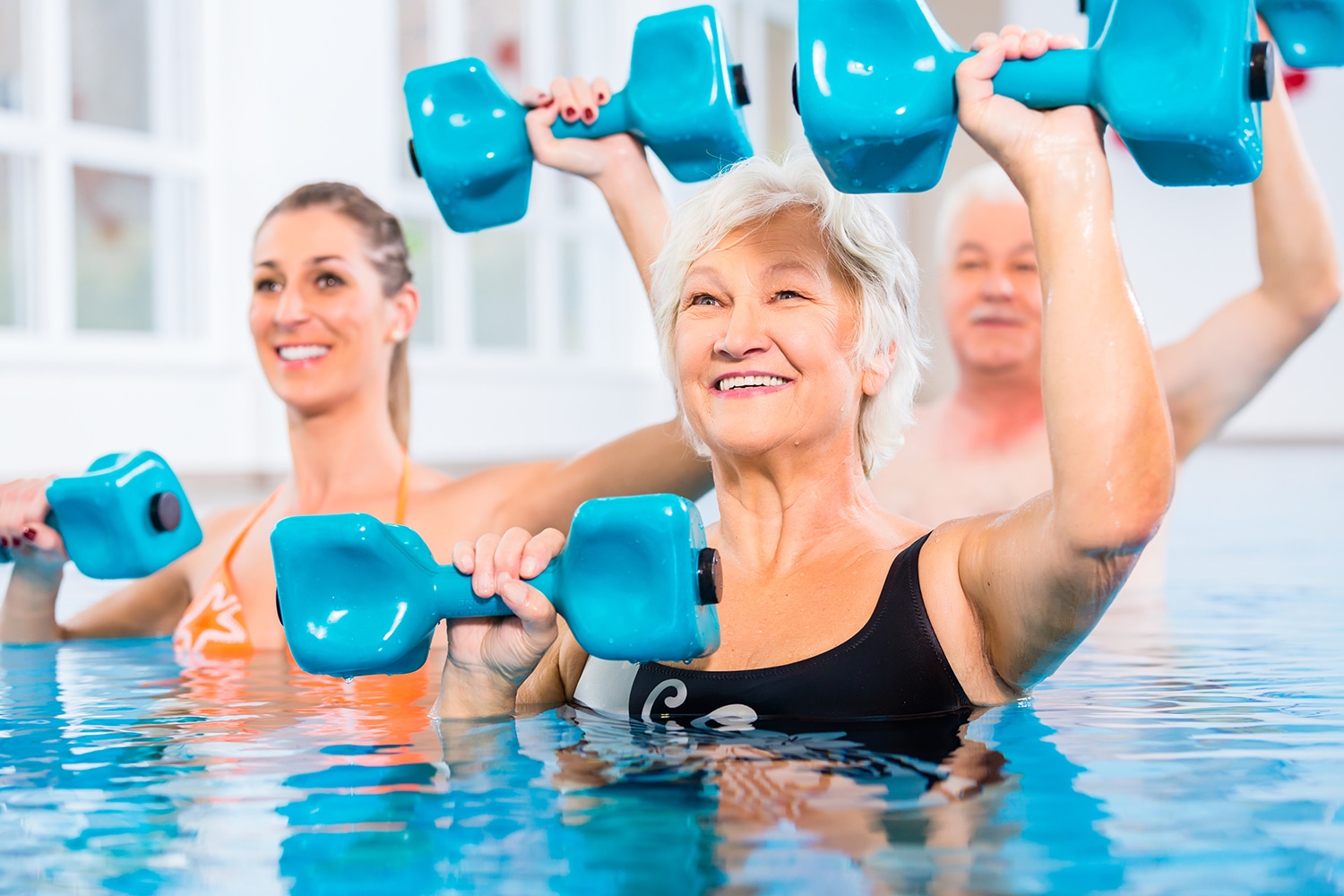When you’re bone tired, signing up for an exercise class sounds far from appealing. But researchers have found that exercise can actually counter the effects of cancer-related fatigue—and a recent study suggests these benefits may extend to cancer survivors in water-based exercise programs too.
The study, published in the February Archives of Physical Medicine and Rehabilitation, randomly assigned 68 women who had been treated for early stage breast cancer to either attend an eight-week, hour-long deep water aerobic exercise program or to follow their health care providers’ usual health recommendations. The women who completed the aquatic exercise program reported feeling less fatigued after their workout than they did before entering the pool. And they continued to feel less fatigued after six months compared with the usual-recommendation group.
Deep water exercise programs like the one in this study often use flotation equipment, such as buoyancy vests or pool noodles, allowing participants to remain vertical without touching the bottom of the pool. You don’t need all of the gear to benefit from being in the pool, however. In many water aerobics classes, participants can simply walk, float or go through movement exercises. The water provides both resistance and buoyancy, creating a challenging and safe low-impact workout.
“It’s a gentle type of exercise,” says fitness expert Karen Dyer, who directs aquatic exercise programs for cancer survivors at the Vanderbilt Dayani Center for Health and Wellness in Nashville, Tenn. “Water exercise is therapeutic, gentle and relaxing, and [it] can help alleviate a lot of the stress [a cancer patient] might have felt. It’s hard to overdo it in the water.”
Many survivors who participate in Dyer’s program tell her that they now feel much more like their old selves before their diagnoses, she says. “They’re getting stronger and building themselves back up, to give back to their bodies what cancer and the treatment took away,” says Dyer.
Cancer Today magazine is free to cancer patients, survivors and caregivers who live in the U.S. Subscribe here to receive four issues per year.





